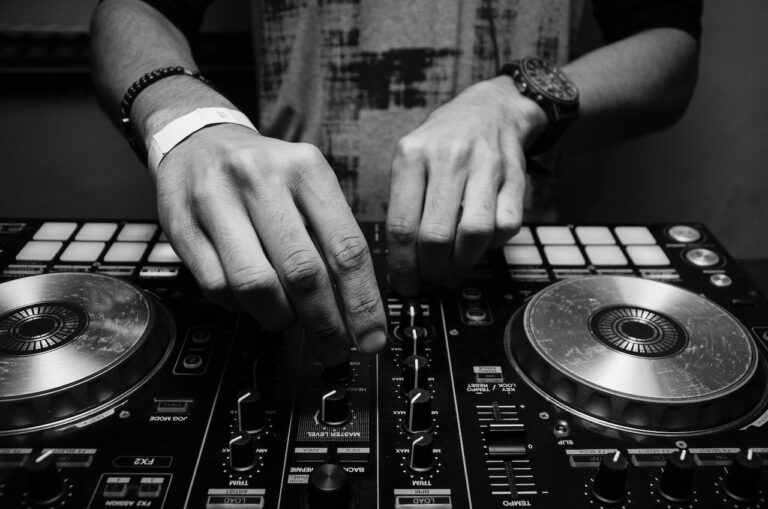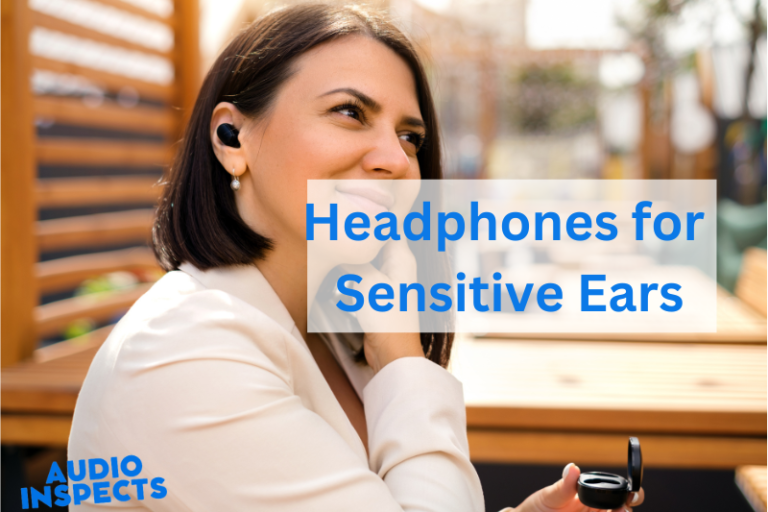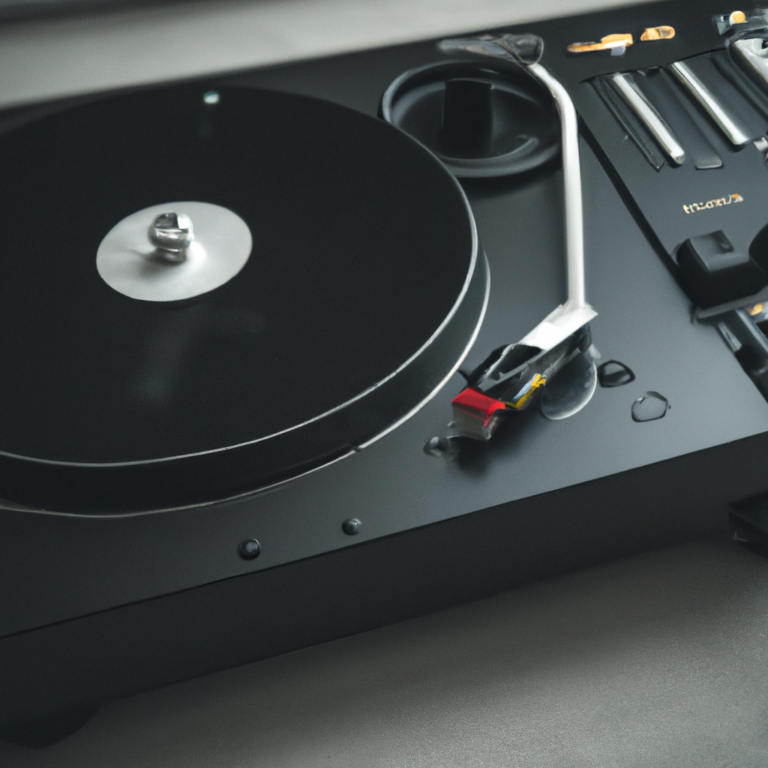The 6 Best Headphones for Snowboarding
Do you love snowboarding and listening to music while you are skiing or boarding because the music makes you enjoy your ride even more? However, it is hard to listen to music when you are snowboarding because the wind is blowing and the noise can be very loud.
In this guide, I have reviewed the best headphones for snowboarding that are easy to use and offer great sound quality. They are designed to fit snugly on your ears so that they stay on your head and don’t slip off your ears.
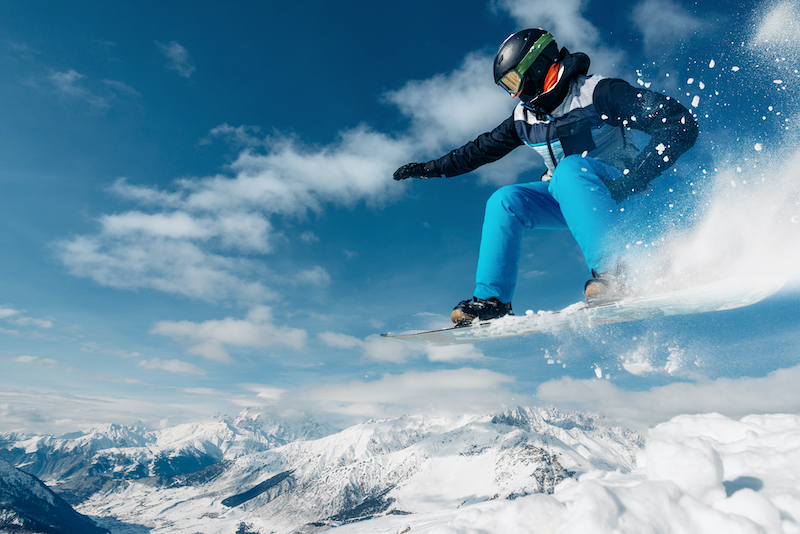
What are the Best Headphones for Snowboarding?
Sena LTSX-MB00M
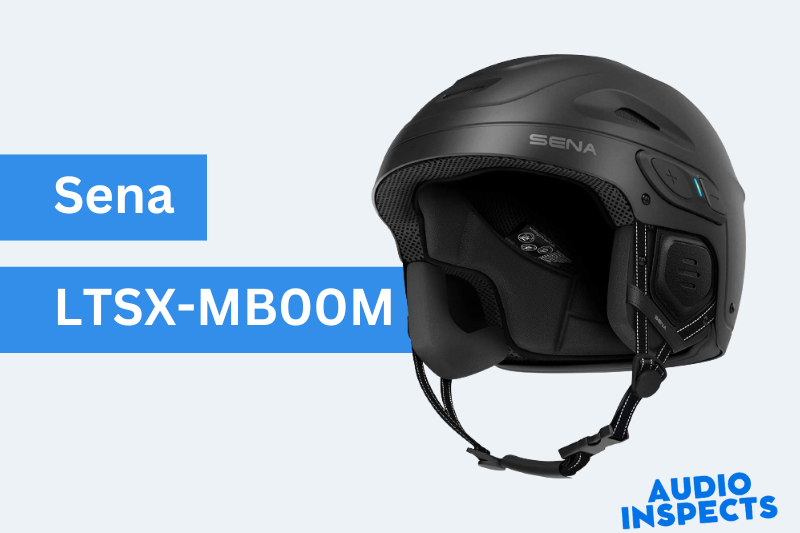
When it comes to enhancing your snowboarding experience, Sena’s LTSX-MB00M Bluetooth helmet headphones are a standout choice, blending fun, safety, and convenience seamlessly.
A highlight of these headphones is the intercom feature, perfect for staying in touch with friends on the slopes. Communication is clear and easy, adding a social dimension to your snowboarding adventures.
Sound quality is another strong suit of the LTSX-MB00M, offering four different levels to suit your preferences. Whether you’re into pumping beats or more laid-back tunes, the dual built-in speakers deliver an immersive audio experience.
The headphones come packed with practical features. The 4-way intercom capability is a game-changer for group communication. Additionally, the inclusion of a microphone and speakerphone functionality enhances overall usability.
Customization is at your fingertips with Sena’s free app, allowing you to tweak radio presets, manage friend lists, and set voice alerts to your liking, maximizing Bluetooth functionality.
Safety is paramount in snowboarding, and Sena has thoughtfully incorporated features to address this. The two visors are designed to keep snow out of your eyes, and the quick-release buckle is a thoughtful addition to secure your goggles, especially handy in case of a fall.
Affordably priced and available in three sizes, the LTSX-MB00M caters to a wide range of snowboarders. These headphones are a fantastic choice for anyone looking to stay connected and entertained while hitting the slopes.
Pros:
- Intercom feature for easy communication
- Four levels of sound quality for a personalized audio experience
- Dual built-in speakers for enjoying music
- Customizable features via a free app
- Safety-oriented design with visors and quick-release buckle
Cons:
- Limited to helmet compatibility
- May require some setup for optimal use
Wildhorn Alta
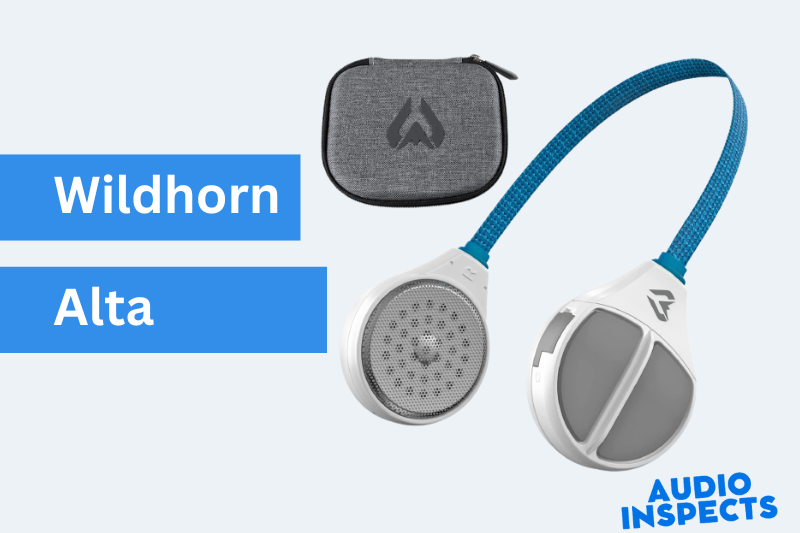
I recently had the chance to try out the Wildhorn Alta Bluetooth Audio system while snowboarding, and I must say, it’s a game-changer. Here’s my take on it:
Right off the bat, the sound blew me away. The 40mm drivers and Bluetooth 5.0 chipset deliver music with such clarity and depth. Whether I cranked up the volume or kept it low, the balance and bass were consistently impressive.
This feature is a lifesaver. I could activate Siri or Google Voice with just a double press of a button, without the hassle of digging out my phone or removing my helmet. The built-in mic made calls clear, and switching songs was a breeze.
What I love about the Alta is its versatility. It fits perfectly into my Wildhorn Drift helmet, and I’ve heard it works just as well with other brands like Smith and Giro. It’s super easy to install – just pop them into the earpads, and you’re good to go.
The design is clearly well-thought-out by people who understand snow sports. The oversized buttons are a godsend, especially when you’re wearing gloves. I could easily control my phone’s functions without any fumbling.
I tested the Alta in some pretty cold conditions, and it didn’t miss a beat. It’s tough and sweat-resistant, which is great for long days on the slopes. Plus, the 10-hour battery life meant I had tunes all day without needing a recharge.
Overall, the Wildhorn Alta Bluetooth Audio system is a fantastic choice for anyone looking to add a soundtrack to their snowboarding or skiing adventures. It offers a perfect blend of sound quality, convenience, and durability.
Pros:
- Crystal clear, balanced sound with great bass
- Super convenient hands-free calling and music control
- Compatible with a wide range of helmets
- Thoughtful design with easy-to-use buttons
- Durable and reliable even in cold weather
- Long battery life for all-day play
Cons:
- They’re a bit on the bulky side
- Not fully waterproof, so I was a bit cautious on wetter days
Unigear Bombing Ski Helmet Speakers
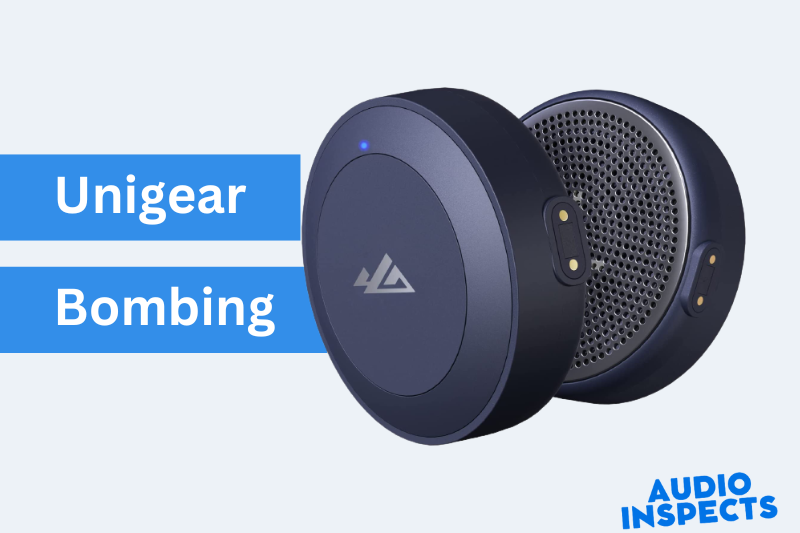
I recently got my hands on the Unigear Bombing Ski Helmet Speakers, and I’ve been thoroughly impressed. As someone who loves snowboarding, these speakers have been a fantastic addition to my gear. Here’s my experience with them:
First things first, these speakers are incredibly light and comfortable. Wearing them for extended periods on the slopes was a breeze, and I barely noticed they were there.
The waterproof design is a huge plus. I’ve used them in various weather conditions, and they’ve held up perfectly. The wind resistance is also a notable feature, ensuring clear sound even on gusty days.
The Bluetooth connection is rock-solid. I didn’t experience any drops or disconnections, which is crucial when you’re cruising down a mountain.
The ability to pair with up to six devices is super convenient. Whether it’s my phone, tablet, or laptop, switching between devices is seamless.
This is a game-changer. Being able to use voice commands or Siri to control the speakers without stopping to fiddle with my phone is incredibly handy, especially when I’m mid-run.
The battery life really stands out. Getting up to 10 hours on a single charge means I can spend the whole day snowboarding with continuous music.
In summary, the Unigear Bombing Ski Helmet Speakers are a solid choice for anyone looking to enjoy music while hitting the slopes. They combine durability, convenience, and functionality in a way that’s hard to beat for snowboarding enthusiasts.
Pros:
- Ultra-lightweight and comfortable for long wear
- Waterproof and wind-resistant, ideal for all weather conditions
- Stable Bluetooth connectivity
- Can pair with multiple devices
- Convenient voice control features
- Long battery life of up to 10 hours
Cons:
- They might not fit all helmet types perfectly
- Sound quality might not match up to high-end audio devices
OutdoorMaster Helmet Drop-in
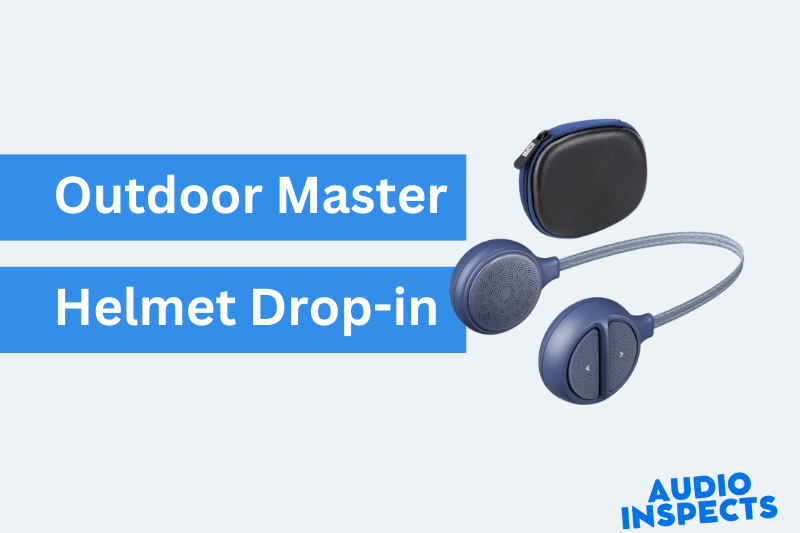
I’ve been using the OutdoorMaster BT01 Ski Helmet for snowboarding, and it’s been a pretty solid experience. Here’s my take on it:
This helmet headphone is wired but comes with Bluetooth connectivity, which is a nice touch. The interface is straightforward and user-friendly, making it easy to navigate even when I’m on the move.
The built-in microphone and support for voice commands like “Hey Siri” are super convenient. It’s great for using my iPhone hands-free while I’m shredding down the slopes.
While it’s not the flashiest design out there, the comfort level is good. The earpads are padded and grip well, though I did notice the ear cups tend to shift during more active movements.
There’s a handy mic port and a standard 3.5mm jack for charging. The control button on the side is practical for adjusting volume, skipping songs, and answering calls. It’s compatible with iPhones, iPods, and iPads, connecting via a 3.5mm plug.
The battery life is a bit of a letdown. It doesn’t last very long, so frequent charging is necessary. Also, it’s important to note that the Bluetooth feature is only compatible with iPhones and iPods, not Android devices.
Overall, the OutdoorMaster BT01 Ski Helmet is a decent choice for snowboarders looking for a reliable set of Bluetooth headphones. It offers a good mix of functionality and comfort, though it does have a few limitations in terms of battery life and device compatibility.
Pros:
- Easy-to-use interface with Bluetooth connectivity
- Built-in microphone and voice command support
- Comfortable, padded earpads
- Convenient control button for various functions
- Compatible with iPhones, iPods, and iPads
Cons:
- Ear cups may not stay in place during active movements
- Limited battery life; requires regular charging
- Bluetooth connectivity is not compatible with Android phones
AfterShokz OpenMove
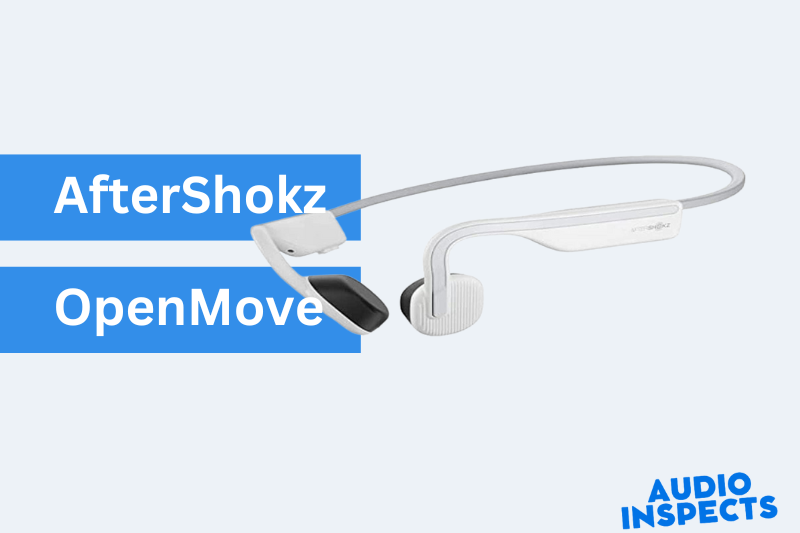
I’ve been using the AfterShokz OpenMove headphones for snowboarding, and they’ve been a solid companion on the slopes. Here’s my breakdown of their performance:
These headphones are designed for all-day use, and they live up to that promise. I found them comfortable enough to wear throughout my snowboarding sessions without any discomfort.
Yes, they’re a bit pricier, but you’re paying for quality. The premium materials feel robust, and their IP55 rating means they can handle moisture well – a big plus for snowboarding.
The removable and replaceable battery offers up to 6 hours of life, which is pretty decent. It’s enough to cover a full day on the slopes or a long workday.
When the battery does run low, recharging is straightforward with a USB cable. This adds to the convenience, especially when you’re on the go.
While the earcups are on the larger side, the adjustable headband helps in finding a comfortable fit. It took a bit of adjusting, but I managed to get it just right.
The sound quality is impressive, and the bone conduction technology is a standout feature. It’s great not only for music but also for staying aware of your surroundings – a key safety aspect when snowboarding.
In summary, the AfterShokz OpenMove headphones are a great choice for snowboarders who value quality sound and durability. They’re well-suited for both active use and general listening, making them a versatile option for various activities.
Pros:
- Comfortable for all-day wear
- High-quality, durable build with moisture resistance
- Good battery life for extended use
- Easy USB charging
- Adjustable fit for comfort
- Excellent sound quality with bone conduction technology
Cons:
- Pricier than some other options
- Earcups might feel too large for some users
SoundBot SB210
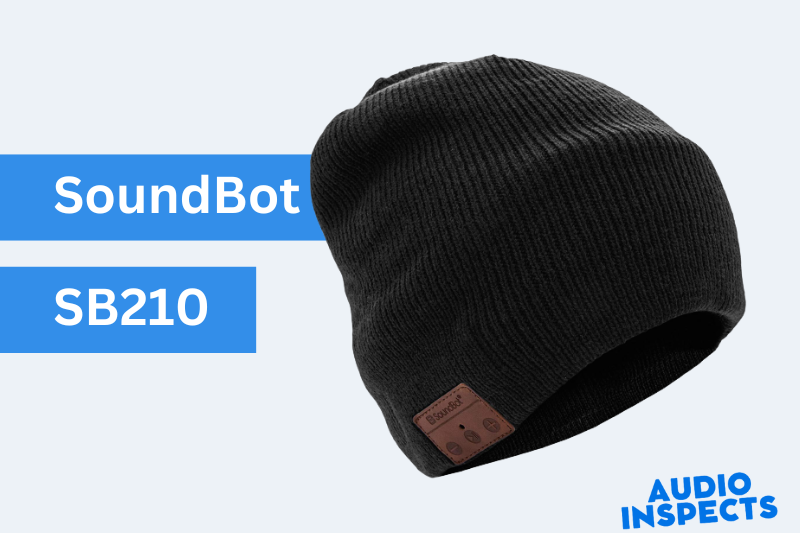
The SoundBot SB210 is one of the best Bluetooth beanie headphones on the market. This speaker is great for anyone who wants a high-quality, comfortable Bluetooth speaker that’s built to last.
It comes with a premium double soft knit that makes it comfortable and keeps it from falling off, and it’s also made stretchable so it can fit any size head.
It comes with a built-in battery that will power it for 7 hours of calls and 5 hours of wireless music streaming. This is a nice feature since you can leave it at home and still have some juice left over.
There are also convenient buttons on the top that let you control volume and skip tracks. The built-in battery also means that you won’t have to worry about running out of power while you’re out and about.
The SoundBot SB210 is one of the best beanie headphones on the market and it’s available at a very good price too.
Pros:
Cons:
What to Look for in Headphones for Snowboarding?
When looking for headphones suitable for snowboarding, there are several key factors to consider to ensure you get the best experience on the slopes. Here’s what to look for:
- Durability and Weather Resistance: Snowboarding involves exposure to cold, moisture, and potential impacts. Look for headphones that are built to withstand these conditions. Features like water resistance (or waterproofing) and a robust build are essential.
- Comfort and Fit: Since you’ll be wearing these headphones under a helmet and for extended periods, they should be comfortable. Look for lightweight models with a secure fit that won’t move around or cause discomfort. Over-ear models should have a low profile to fit comfortably under a helmet.
- Sound Quality: Good sound quality is important for enjoying your music on the slopes. Look for headphones with clear, balanced sound and adequate volume levels.
- Battery Life: If you’re choosing wireless headphones, battery life is a crucial factor. You’ll want a battery that lasts long enough to cover your time on the slopes without needing a recharge.
- Safety Features: Being aware of your surroundings is crucial for safety while snowboarding. Headphones with open-ear designs or bone conduction technology allow you to listen to music while still hearing ambient sounds.
- Wireless Connectivity: Wireless headphones are generally more convenient for snowboarding as they eliminate the risk of getting tangled in cords. Look for reliable Bluetooth connectivity.
- Easy-to-Use Controls: When you’re out in the cold with gloves on, fiddling with small buttons can be frustrating. Look for headphones with intuitive, easy-to-use controls.
- Compatibility with Helmets: Ensure the headphones are compatible with your snowboarding helmet. Some headphones are designed to fit into helmet ear pads, while others can be worn independently.
- Voice Command and Hands-Free Features: Features like voice commands and hands-free calling can be very useful when you’re on the slopes and don’t want to take out your phone.
- Price: Finally, consider your budget. There are options available at various price points, but remember that investing in a durable, high-quality pair can be more cost-effective in the long run.
By considering these factors, you can find a pair of headphones that will enhance your snowboarding experience, keeping you entertained and safe on the slopes.
FAQs
Can I use my regular headphones for snowboarding?
Using regular headphones for snowboarding is not recommended as they may not provide sufficient protection against cold temperatures, snow, and moisture. It is best to use specialized snowboarding headphones that are designed to withstand these conditions and provide better comfort and sound quality.
Are snowboard headphones safe?
Snowboard headphones can be safe as long as you follow certain precautions. Here are a few tips to ensure safety while using snowboard headphones:
1. Choose headphones specifically designed for outdoor activities and sports. They should have features like water resistance, durable construction, and secure fit.
2. Opt for wireless headphones to avoid tangling cables that can interfere with your movements.
3. Keep the volume at a moderate level to prevent hearing damage and remain aware of your surroundings.
4. Use noise-canceling or noise-isolating headphones with caution, as they may block out important sounds like approaching skiers or snowboarders.
Remember to prioritize your safety on the slopes and use snowboard headphones responsibly.
Can snowboard headphones be used while riding?
Yes, snowboard headphones can be used while riding.
Will snowboard headphones damage your ears?
Using snowboard headphones at a high volume for extended periods can potentially damage your ears. It is important to listen to music or other audio at a safe and comfortable volume level to protect your hearing.
Can snowboard headphones protect me from ear infections?
Snowboard headphones are not specifically designed to protect against ear infections. While they may help to block out external noise and provide a more enjoyable snowboarding experience, they do not provide any special protection against ear infections. To prevent ear infections, it is important to maintain proper hygiene, keep your ears dry, avoid prolonged exposure to cold water or extreme temperatures, and seek medical attention if you experience any symptoms of an ear infection.
Conclusion
The first question to ask is, do you really need headphones? What is your snowboarding experience like?
For some, snowboarding is the ultimate rush. They go out on the mountain with their friends and blast through the powder. For others, snowboarding is an escape. They don’t care if it’s cold, they want to be alone and focus on themselves.
So if you’re going to take the time to put on your headphones, why not use them when it comes to your snowboarding? They can enhance your experience and help you enjoy your ride more. But if you’re going to turn your head off, you might as well just leave them at home.
Our Mission: At AudioInspects, we are dedicated to providing the most comprehensive and authentic reviews of audio equipment on the market. We conduct independent testing and research of products, so you can make an informed decision before making a purchase. Our mission is to help you find the best audio equipment to improve your listening experience. So trust us to deliver the most reliable recommendations and advice.
Disclosure: When you do decide to make a purchase through our links, please note that we may earn a commission, but this does not affect the honesty of our reviews. You can read our affiliate disclosure in our Disclosure.

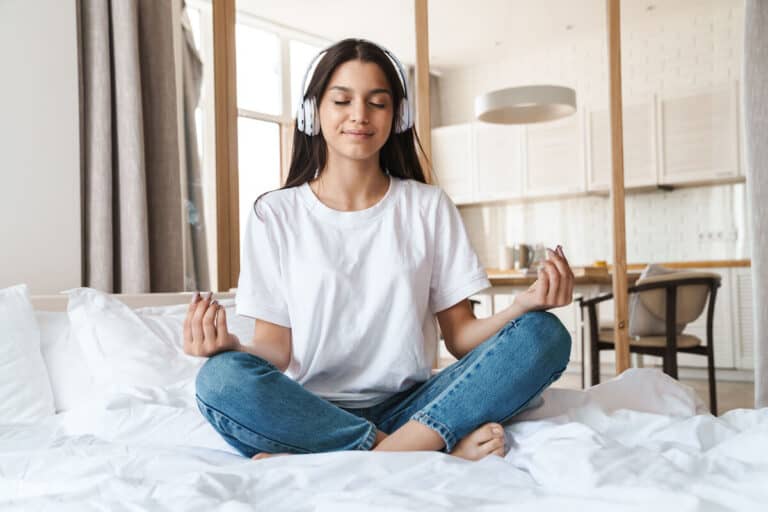
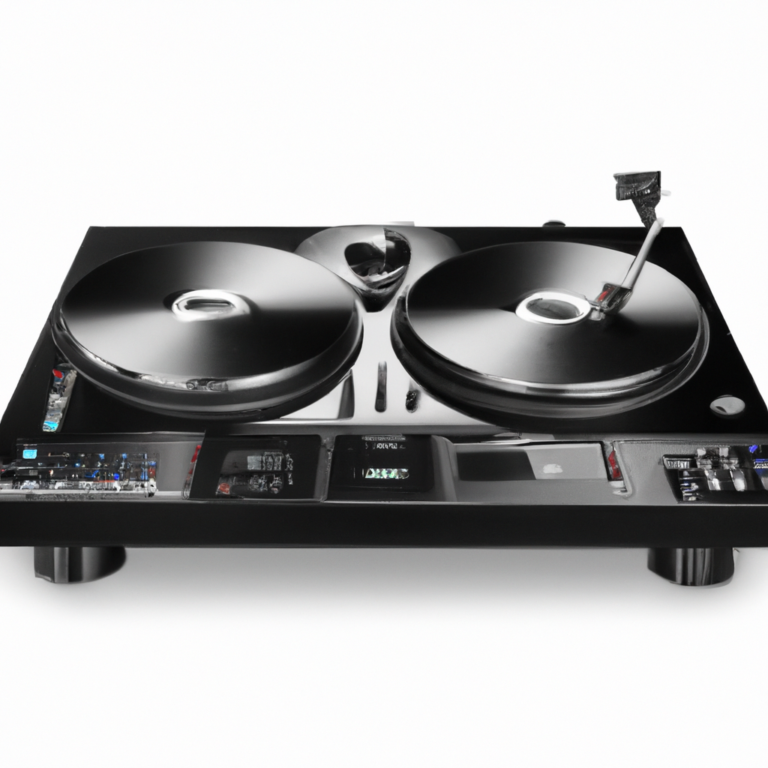
![The 10 Best Karaoke Microphones [Ranked & Reviewed]](https://audioinspects.com/wp-content/uploads/2022/05/best-karaoke-microphones-2022-768x512.jpeg)
